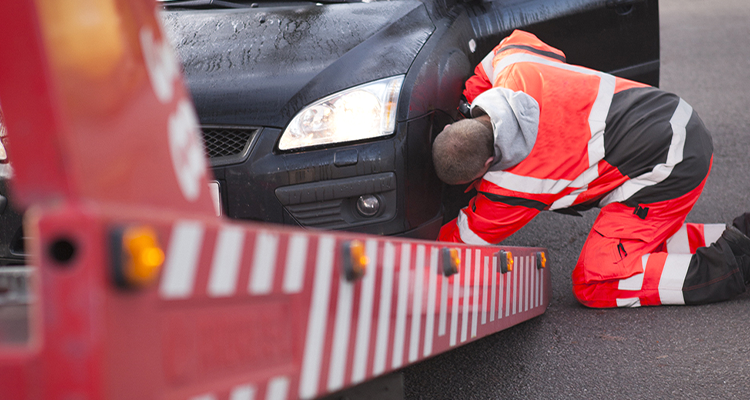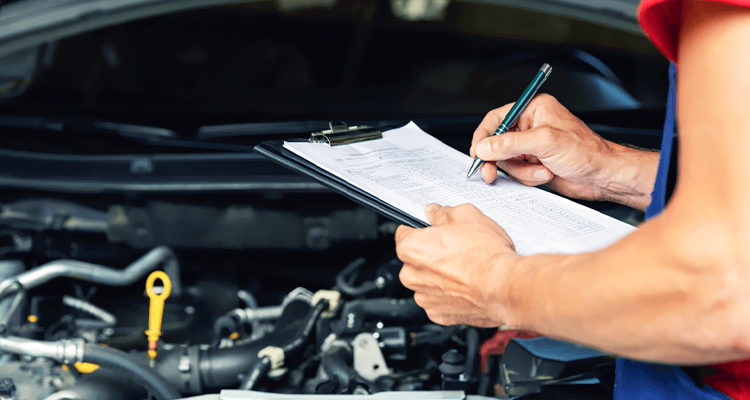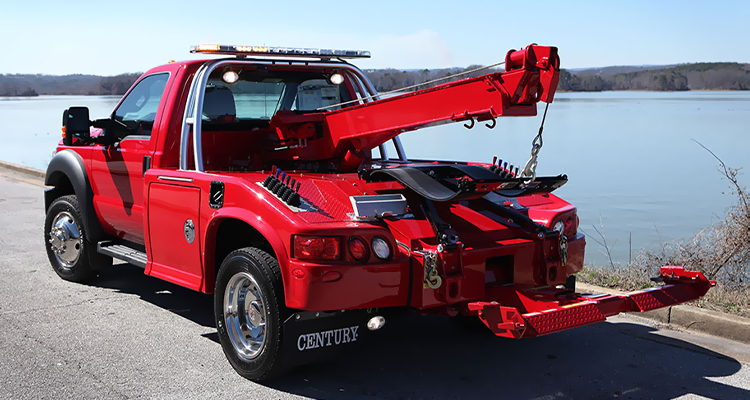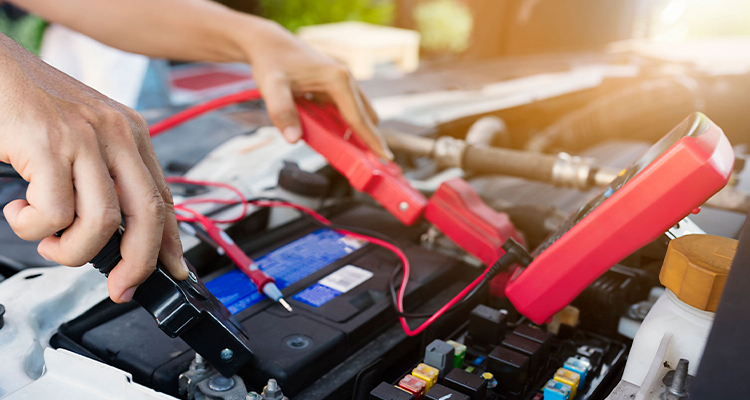
Vehicle breakdowns and other similar issues can occur unexpectedly. Becoming stranded on the road due to a vehicle breakdown can be stressful. This is why it is important to make sure that you have an emergency contact number of a trusted roadside assistance company near you.
Roadside assistance offers various services such as jump-starting, repairing flat tires, dead batteries, empty gas tanks, towing, and more. Many people often ignore the importance of such roadside assistance, but there are many reasons why you need it.
This blog post mentions some important reasons why you should get roadside assistance for your car.
What Is Roadside Assistance?
Roadside assistance is the provision of services available to you in the case of a car breakdown on the road. It includes services for
flat tires, dead batteries, vehicle towing, jump-starting, and more. Other services might also include car lock-out and winching.
Reasons For You To Get Roadside Assistance
Roadside assistance brings about tremendous ease and comfort when you are stuck on a highway with no other help nearby. Some benefits of hiring a roadside assistance service are as follows:
Prompt Rescue
Most reliable roadside assistance services, such as
Ontario Towing, give instant recovery services and roadside assistance. This is especially helpful when you are on a highway, as highway patrol sometimes takes forever to reach your point. Roadside assistance service providers are equipped with the latest tools and technology to track your exact location and reach the spot in no time.
Safety
Roadside assistance services provide you with a safe environment as they come to rescue you on time. Car breakdowns can happen anywhere. Having a roadside assistance company on call is the safest way to get out of any situation quickly.
Budget-Friendly
Roadside assistance services can save you from the hassle of searching for the right mechanic in a short time. Roadside assistance is a cost-effective way of getting the services that you need for your vehicle. You will be saved from overpaying and untrustworthy mechanics who might take advantage of your situation and charge you more.
The Right Expertise
Most mechanics on the road are non-professionals who don’t understand the vehicle’s structure and end up doing something more problematic. You should never hand over your car to them, as they are always looking for such customers from whom they can make some money. A professional roadside assistance service will provide you with the right expertise for your situation and send the best mechanics to you. Giving you the satisfaction that your vehicle is in the right hands.
Peace Of Mind
Apart from having your problems solved sooner, you get peace of mind with the roadside assistance providers. You know that you have hired someone who knows how to do their job. Roadside service providers often have to do a lot of work for other customers as well. So, they won’t waste their time pretending to do something with your car. They’ll figure out what is wrong with your car and repair it as soon as possible.
Numerous Services
A major drawback of relying on a local mechanic is that they don’t offer different vehicle solutions. Most of them are experts in a particular problem. However, roadside assistance provides a set of services. This saves you the time and effort from having to search for relevant services as roadside assistance providers can help you with almost any problem.
About Ontario Towing
Ontario Towing is known for its professionalism in providing the best roadside assistance services. We are currently serving our customers in Ottawa and the surrounding areas.
Contact us for more information.
Ontario Towing, nestled in Ottawa, specializes in elite towing, timely
car lockout resolutions, and unparalleled roadside support. Their expansive offerings, from immediate
tire services to broad-ranging tows, make them indispensable for Ottawa and its adjacent locales.
 Dealing with a vehicle breakdown is a dreadful situation that no one likes to find themselves involved in. Your vehicle may break down unexpectedly, causing panic and chaos. A vehicle breakdown can creep up out of nowhere and can spoil all your driving plans in a second.
A major reason for most car breakdowns is that most vehicle owners forget about preventive maintenance, while some are unsure of what needs to be done to keep their vehicle in a decent condition. Therefore, the majority of these vehicle owners end up overlooking basic maintenance. Overlooking the basic maintenance of your vehicle may lead to a vehicle breakdown, especially when you least expect it. Most times, you may even end up waiting on the side of the road for help from a certified towing company.
Also Read: Tips For Choosing The Right Towing Company In Ottawa
However, you can avoid all this hassle by learning more about basic maintenance and taking preventive measures. These preventative measures will help you minimize the chances of a vehicle breakdown and potentially save you a lot of resources, such as your money and time.
This blog post outlines some of the basic preventative maintenance measures you can take to avoid a vehicle breakdown.
Dealing with a vehicle breakdown is a dreadful situation that no one likes to find themselves involved in. Your vehicle may break down unexpectedly, causing panic and chaos. A vehicle breakdown can creep up out of nowhere and can spoil all your driving plans in a second.
A major reason for most car breakdowns is that most vehicle owners forget about preventive maintenance, while some are unsure of what needs to be done to keep their vehicle in a decent condition. Therefore, the majority of these vehicle owners end up overlooking basic maintenance. Overlooking the basic maintenance of your vehicle may lead to a vehicle breakdown, especially when you least expect it. Most times, you may even end up waiting on the side of the road for help from a certified towing company.
Also Read: Tips For Choosing The Right Towing Company In Ottawa
However, you can avoid all this hassle by learning more about basic maintenance and taking preventive measures. These preventative measures will help you minimize the chances of a vehicle breakdown and potentially save you a lot of resources, such as your money and time.
This blog post outlines some of the basic preventative maintenance measures you can take to avoid a vehicle breakdown.
 Dealing with a vehicle breakdown is a dreadful situation that no one likes to find themselves involved in. Your vehicle may break down unexpectedly, causing panic and chaos. A vehicle breakdown can creep up out of nowhere and can spoil all your driving plans in a second.
A major reason for most car breakdowns is that most vehicle owners forget about preventive maintenance, while some are unsure of what needs to be done to keep their vehicle in a decent condition. Therefore, the majority of these vehicle owners end up overlooking basic maintenance. Overlooking the basic maintenance of your vehicle may lead to a vehicle breakdown, especially when you least expect it. Most times, you may even end up waiting on the side of the road for help from a certified towing company.
Also Read: Tips For Choosing The Right Towing Company In Ottawa
However, you can avoid all this hassle by learning more about basic maintenance and taking preventive measures. These preventative measures will help you minimize the chances of a vehicle breakdown and potentially save you a lot of resources, such as your money and time.
This blog post outlines some of the basic preventative maintenance measures you can take to avoid a vehicle breakdown.
Dealing with a vehicle breakdown is a dreadful situation that no one likes to find themselves involved in. Your vehicle may break down unexpectedly, causing panic and chaos. A vehicle breakdown can creep up out of nowhere and can spoil all your driving plans in a second.
A major reason for most car breakdowns is that most vehicle owners forget about preventive maintenance, while some are unsure of what needs to be done to keep their vehicle in a decent condition. Therefore, the majority of these vehicle owners end up overlooking basic maintenance. Overlooking the basic maintenance of your vehicle may lead to a vehicle breakdown, especially when you least expect it. Most times, you may even end up waiting on the side of the road for help from a certified towing company.
Also Read: Tips For Choosing The Right Towing Company In Ottawa
However, you can avoid all this hassle by learning more about basic maintenance and taking preventive measures. These preventative measures will help you minimize the chances of a vehicle breakdown and potentially save you a lot of resources, such as your money and time.
This blog post outlines some of the basic preventative maintenance measures you can take to avoid a vehicle breakdown.


 A vehicle breakdown when you least expect it is challenging and frustrating. Depending on the location where your car has broken down, you might have to call for towing services or roadside assistance. Apart from towing broken down vehicles, tow trucks are used to transport impounded, disabled, improperly parked, and scrapped motor vehicles from one point to another.
Tow trucks are also used to recover damaged vehicles in an accident. They safely tow these vehicles from the accident area to a repair workshop. You call these towing companies whenever you are stuck in the middle of the road with a broken car and they help you get your vehicle to the automobile repair center.
There are several different types of tow trucks available, and depending on your needs and situation, it is essential to choose one that works for your vehicle.
A vehicle breakdown when you least expect it is challenging and frustrating. Depending on the location where your car has broken down, you might have to call for towing services or roadside assistance. Apart from towing broken down vehicles, tow trucks are used to transport impounded, disabled, improperly parked, and scrapped motor vehicles from one point to another.
Tow trucks are also used to recover damaged vehicles in an accident. They safely tow these vehicles from the accident area to a repair workshop. You call these towing companies whenever you are stuck in the middle of the road with a broken car and they help you get your vehicle to the automobile repair center.
There are several different types of tow trucks available, and depending on your needs and situation, it is essential to choose one that works for your vehicle.

 Vehicle breakdowns and other similar issues can occur unexpectedly. Becoming stranded on the road due to a vehicle breakdown can be stressful. This is why it is important to make sure that you have an emergency contact number of a trusted roadside assistance company near you.
Vehicle breakdowns and other similar issues can occur unexpectedly. Becoming stranded on the road due to a vehicle breakdown can be stressful. This is why it is important to make sure that you have an emergency contact number of a trusted roadside assistance company near you.

